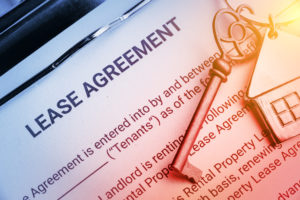Navigating Rental Ownership during the Pandemic

Rental property ownership is filled with ups and downs. If you currently own residential real estate, you may be faced with the most difficult period of your ownership. In addition to trying to navigate your personal financial situation, you have to worry about rent coming in from your tenants. The protection of your lease may not do you much good in dealing with the short term loss of revenue. Your tenants have rights afforded to them by your lease and also by the specific state the property is located. Instead of making rash demands or pulling capital from unnecessary avenues to keep the property afloat you should take a step back and arm yourself with as much information as possible. Here are five things you need to do if you are having trouble collecting rents during COVID-19.
1. Understanding Tenant Rights
Policies are changing at a rapid pace to keep up with the crisis. One thing the government doesn’t want is a repeat of the housing collapse. Almost immediately at the outset of the crisis there has been a push to freeze mortgage and rent payments. If your tenant is having trouble making their payment, you need to understand what rights they do and do not have. Trying to stay updated with any changes can be a challenge, but the information is out there. The bottom line is that you do not have the right to evict a tenant who has stopped paying their rent. As much as this may impact your bottom line. The good news is that you may have other viable alternatives.
2. Talk to your Tenants
Before you make assumptions about the payment you need to have a conversation with your tenant. The rent forgiveness may not apply to every tenant in every situation. Find out if they have experienced a loss of income, shift in employment or other factors that will restrict them from paying their rent. You don’t need to ask for paystubs and bank statements, but there should be a justifiable reason for the lapse in payment. Here is where you need to think big picture with the property. You have the right to evict when you are able, but is that really the best thing for your bottom line. See what your tenant can afford to pay and if it makes sense for you. On a property with surplus cash flow taking even 20% off the rent still gives you 80% coming in. This will allow you to continue making the payment and not digging a bigger hole.
3. Mortgage Options
If talking to your tenant is your first move, reaching out to your mortgage company is a close second. The good news with an eviction memorandum is that your mortgage company is most likely doing the same thing. However, you need to understand exactly what you are getting into. Your mortgage company may put a halt on the payment in the form of a short term deferment. Instead of putting the missed payments on the back end of the mortgage, they may ask for the payments after a 90 day period. If you do not have the full amount of however many months you defer, the lender may have the right to foreclose. A short term deferment may be putting a Band-Aid on a much bigger wound.
4. Legal Action
There are only so many ways to protect yourself as a landlord. The common thought is that a signed lease is immediate and binding. Yes, it offers long term protection in the event of a dispute, but it doesn’t force your tenant to take action. If they can’t, or don’t want to, pay their rent there is technically nothing you can do to make them. You are forced to go through the long and drawn out eviction process and hope the court expedites your request. Now is the time to circle back to your lease, and with your attorney, to see what if any legal action you can take. With memorandums in place, there is nothing you can do until they are lifted, but you want to act as soon as it is over. Putting things in place now to evict can save you months, and thousands of dollars, down the road.
5. Read the Room
There is no getting around the fact that this is a difficult time for everyone. Even if rental cash flow is a good chunk of your income there isn’t much you can do until this is over. There is no use calling your tenants every day, emailing your attorney and even writing your local state officials. All you are doing is essentially wasting your time and getting yourself worked up over something you can’t control. Furthermore, if you continue to harass your tenants to leave they may do something subtle to damage the property. Yes, you can be frustrated and annoyed, but sometimes in business there are bigger things to worry about. If you and your family have their health, the financial aspect of virus and its impact will work itself out hopefully sooner rather than later.
Like most other rough patches in business, and in life, things usually get better with time. Not receiving rent certainly isn’t ideal, but you have more options than ever. The more information and options you have the easier it is to make the best decision.
[fbcomments]